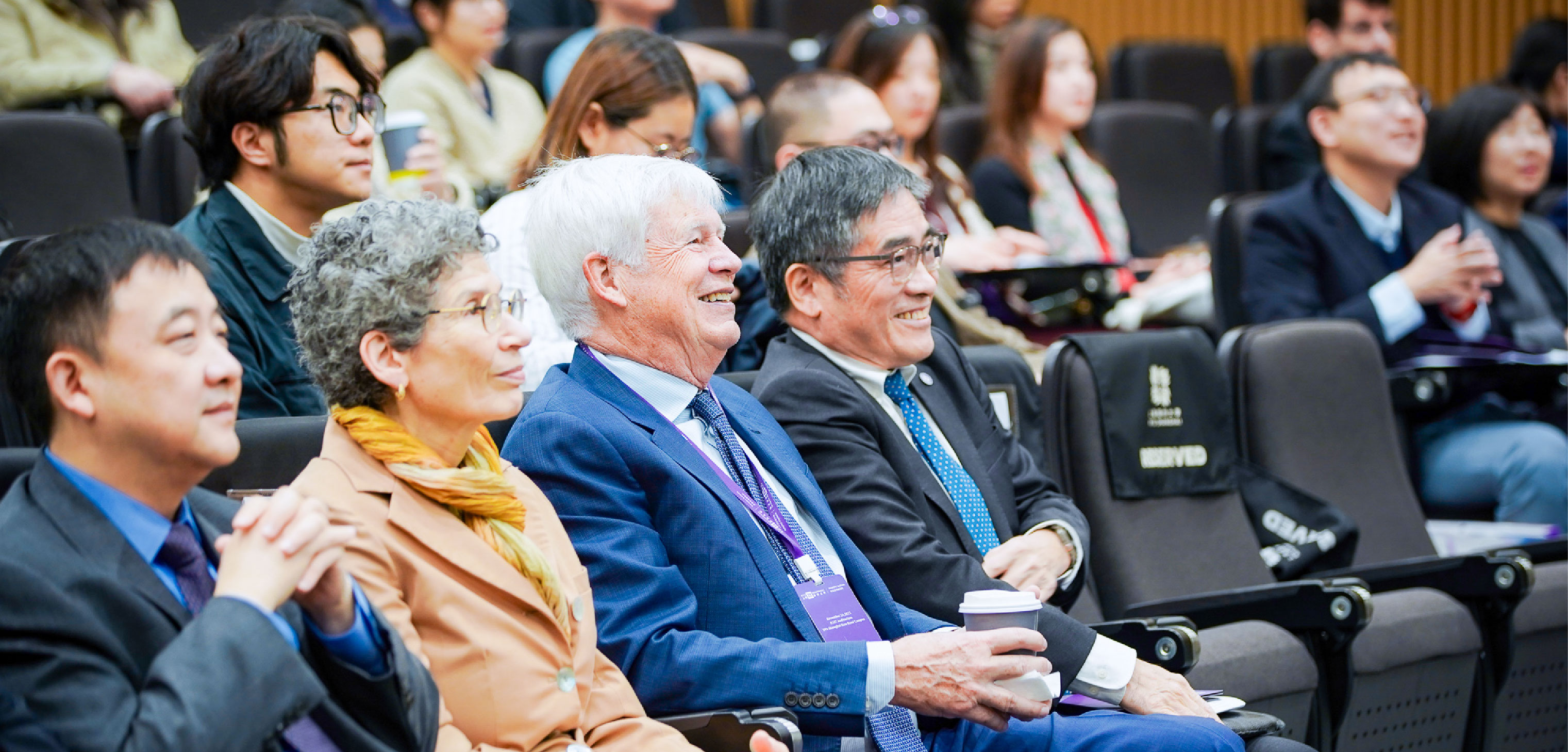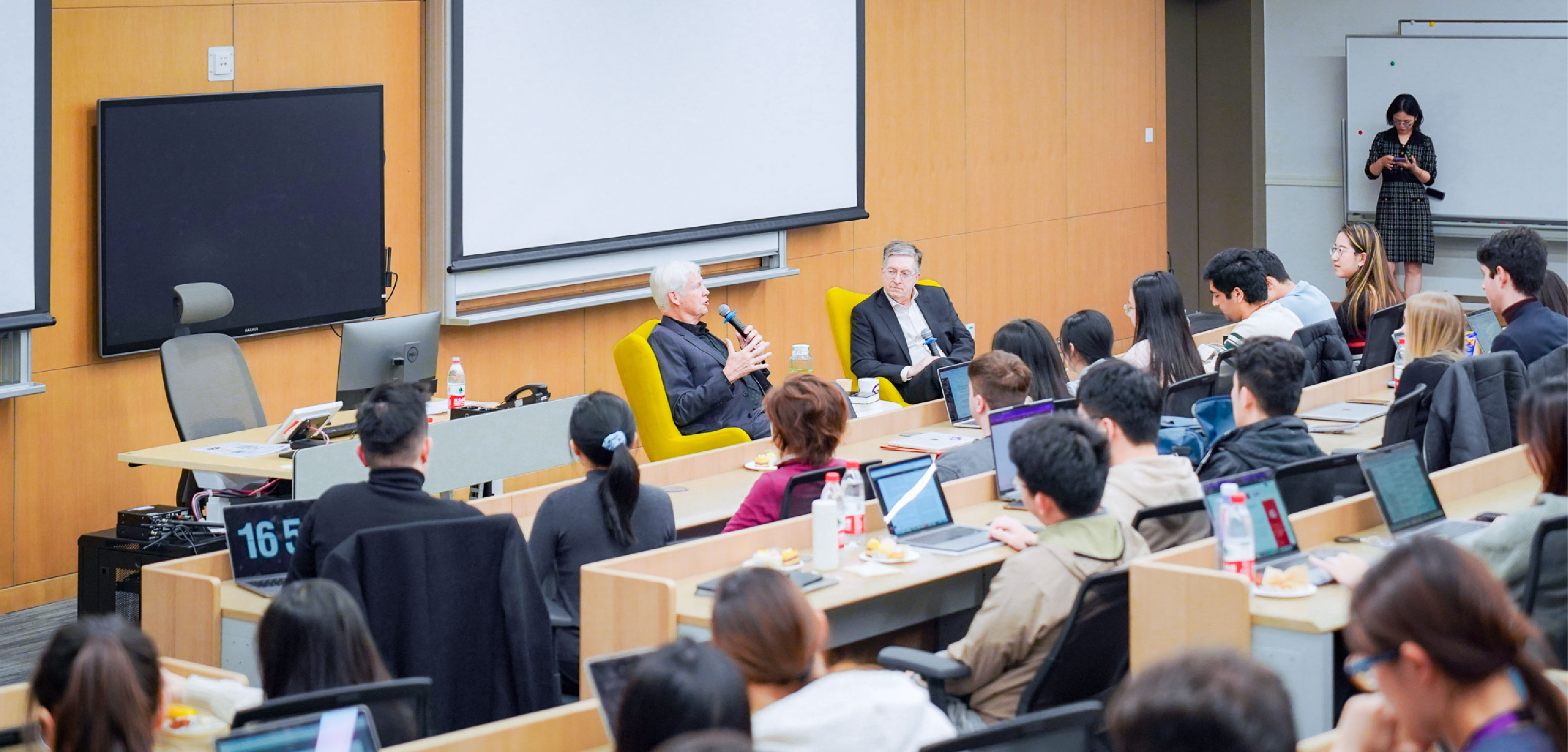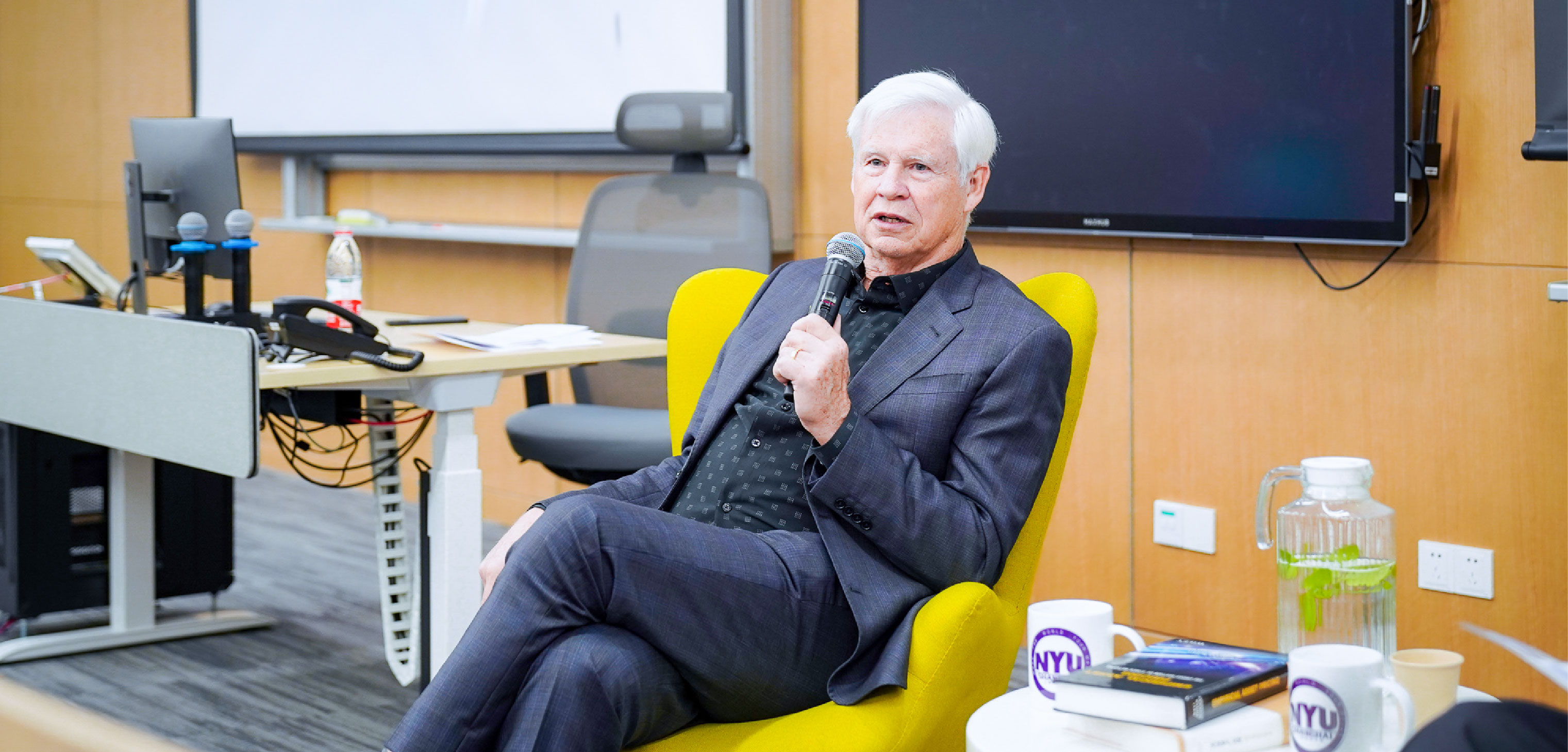Nov 17 2023
Published by
NYU Shanghai

NYU Professor Emeritus of Finance and 2003 Nobel Laureate in Economics Robert Engle, the co-director of the Volatility Institute at NYU Shanghai (VINS), visited the New Bund campus over the week - his first visit after three years of COVID-19 travel restrictions. During his stay, Engle attended the 2023 VINS Annual Conference and engaged in an inspiring conversation with students.
The Nov 10 VINS annual conference aimed to honor Professor Robert Engle's remarkable academic achievements and outstanding contributions to finance and econometrics, as well as his significant influence on NYU Shanghai’s academics. The conference brought together prominent scholars, including 2013 Nobel laureate Lars Hansen, Princeton professor Mark W. Watson, Harvard professor Emil Siriwardane, and others. Scholars shared insights into topics such as the impact of climate change uncertainty on social valuation and policy and approaches to forecasting inflation rates.

(From left to right) Dean of Business Chen Yuxin, Provost Joanna Waley-Cohen, Professor Robert Engle, and Chancellor Tong Shijun at the conference
The event provided a unique platform for scholars and students worldwide to acknowledge his profound impact and influence. Additionally, a special celebration was held for Engle's 81st birthday, with NYU Shanghai Chancellor Tong Shijun and Provost Joanna Waley-Cohen delivering their good wishes on behalf of the University.
On Nov 15, Engle participated in a conversation with NYU Shanghai students moderated by Vice Chancellor Jeffrey Lehman. During the event, he recalled for students the phone call from Stockholm that changed his life. “What [winning the Nobel Prize] did for me was teach me how to talk like an ordinary person rather than a mathematician,” he said. Instead of taking 20 minutes to explain his research which won him global recognition, he says now he knows how to explain it simply. ”I just say ‘the statistical model that can be used to predict risk in financial markets.’ Bingo.” Engle said winning the Nobel has changed his life. “It changed things tremendously for me and gave me lots of opportunities, such as being here with you today.”

Professor Engle (left) participated in a conversation with NYU Shanghai students moderated by Vice Chancellor Jeffrey Lehman (right)
In the Q&A session, Engle exchanged ideas on various topics with students, including his decision to transfer from physics to finance, prospects for quantitative investment, how the volatility model responds to high-impact yet unexpected ‘black swan events’, and the differences between econometrics and quantitative finance.
In discussing climate change with the students, Engle emphasized the significance of acknowledging the long-run termination risks in investments. Long-run risks, as he defined them, involve adverse events with a probability of occurring in the distant future, with climate change being a typical example. This framework allows us to observe the impact of long-term risks on current behavior, asset prices, portfolios, and various activities, he said.
“In finance, we're interested in how the future affects the present, not just how the present affects the future,” he explained. “For example, due to climate change, some businesses such as fossil energy companies may face uncertain termination dates at which they will stop doing business in the future. This uncertainty would affect how they make investment decisions today.”
“We expect that energy companies will begin to underinvest in drilling and exploration for new fields. There's always been so much money spent on long-horizon projects by oil companies, and it's a big change that they're not doing this so much anymore,” he said. Engle stressed the need to consider such termination risks faced by businesses when making investment decisions. He also suggested that better policies could be instrumental in mitigating risks associated with climate change and guiding more informed investment choices.

In the coming years, NYU Shanghai VINS research will focus on three main directions, including termination risk, carbon exchange, and sustainable funds in China. Engle encouraged students to participate in research projects related to these directions.
“Climate change is one of the greatest risks in our future for the planet. I made the decision to jump into it and see if I can figure out how to make a contribution and I'm very happy that I did,” he said. “I think that a lot of people in the field feel the same way, that they really want to make a contribution both academically and perhaps physically and politically. I encourage you to do so as well, as I think there is a chance that it will make a difference.”


